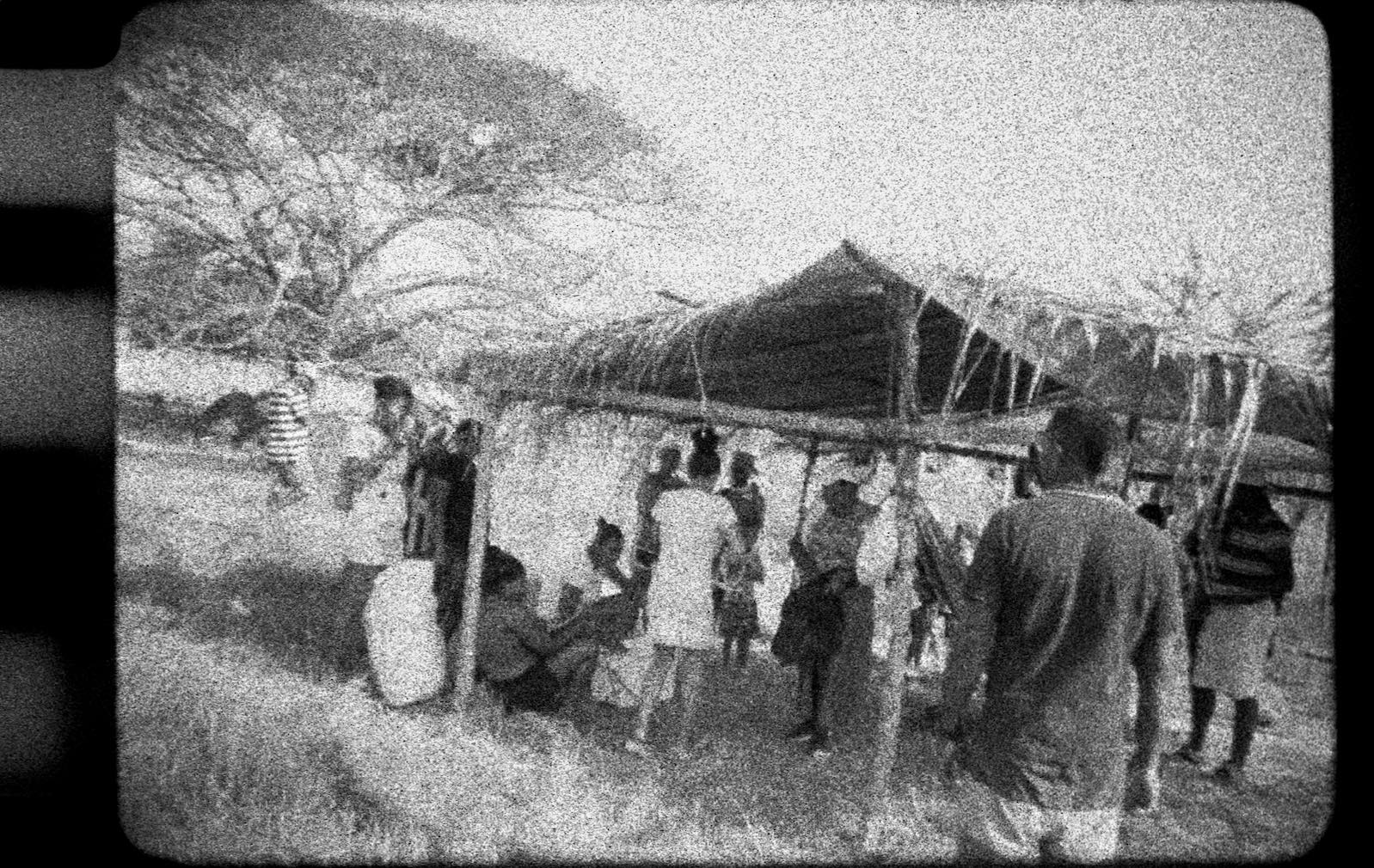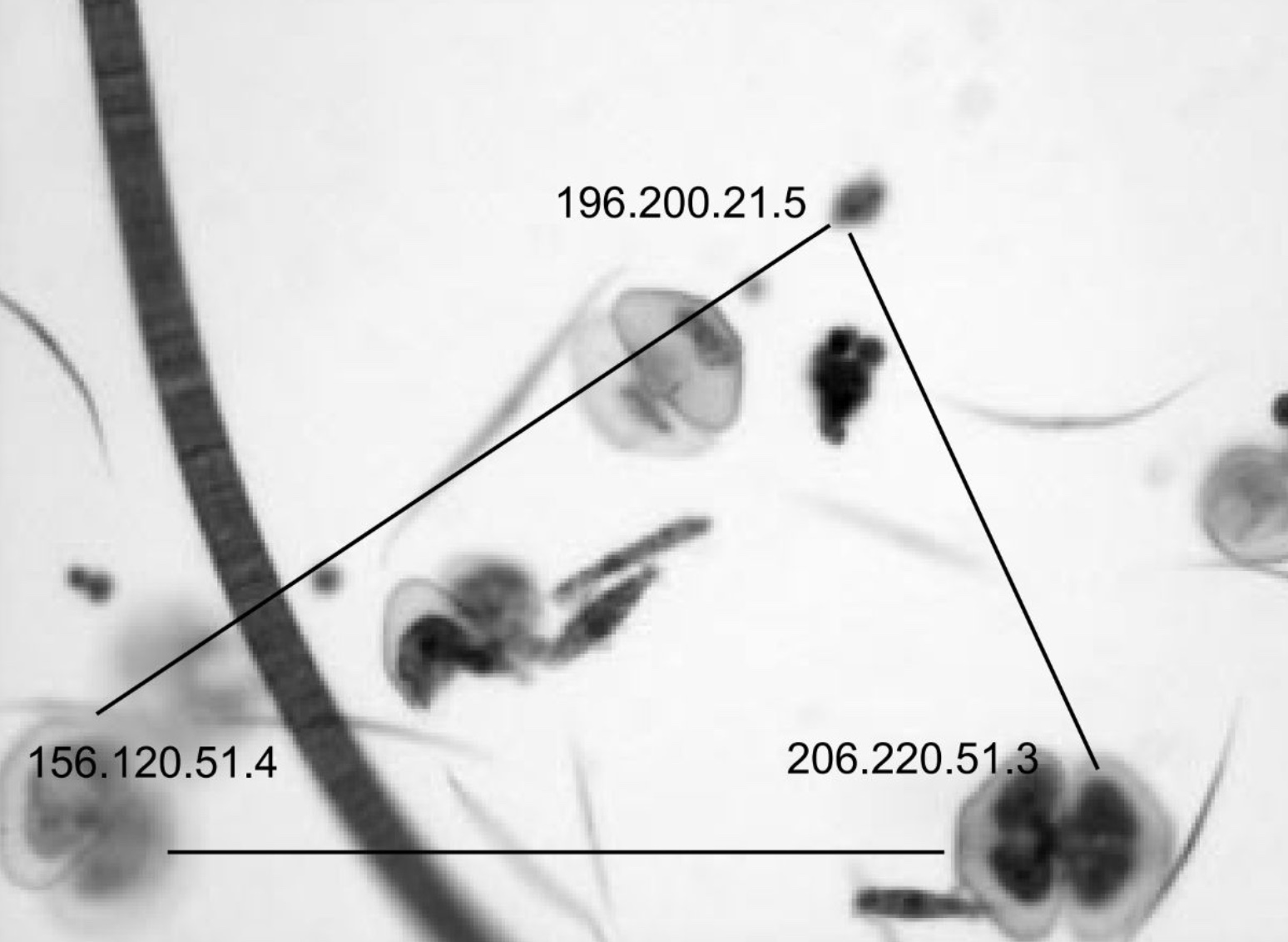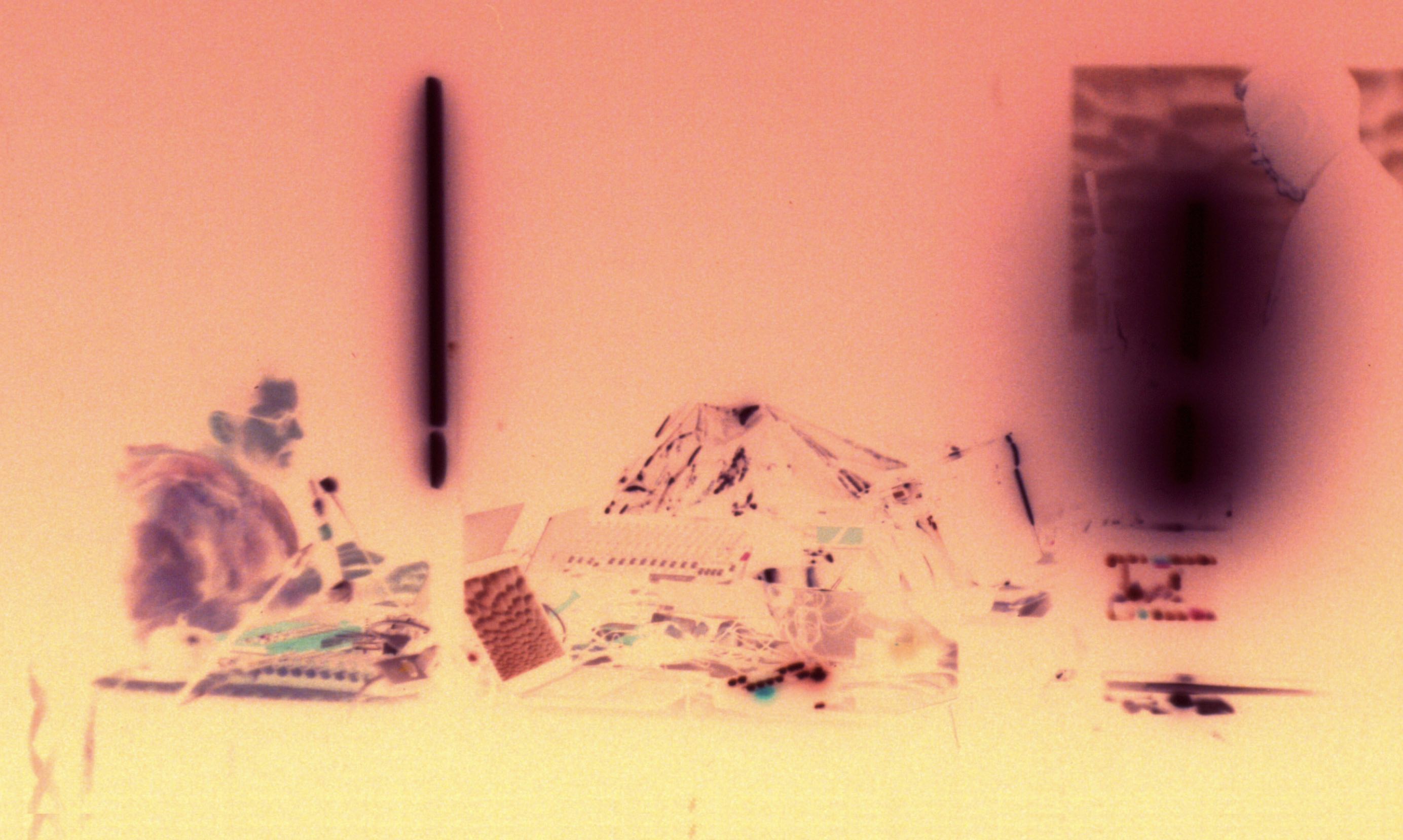
Against the False “We” (‘undeclared movements’) - ADuqueJ
After reading a call for projects against tech-fascim, I’ve read with discomfort the “collectiveness” gathered within a “we” that not only represents but makes “us” responsible like if “we” are all part of the same particular group of artists in the middle of Europe. Im conscious that in all good intention “they” work for the rest-of-us in the “world” whom, unable to identify with translocal ideas of “togertherness”, struggle against the powers of extractivist infrastructures in all life levels:
**“We are only at the very beginning of conceptualizing anti-fascist tech, but the task is more urgent than ever.” **
Indeed, present times are the very beginning for to come drasticly misguided (by AI ‘malingformation’) epoch, hence the “we” in the sentence performs a slide off-track while assuming a shared commonplace, such a unified understanding of what constitutes fascism and what technology should do about it. Who is included in this “we”? Tech workers writing code? Academics writing papers? Activists organizing protests? People living under complete authoritarian regimes? Those in rural areas with no internet access are included or again, excluded? Communities whose power grids fail regularly and can’t afford devices or data plans to answer such ringing calls? Yes, there are populations displaced by conflict who had never known what means connection to digital networks. The sentence collapses. There’s no “We” that could fit into one voice. Not even naively.
The sentence positions this imaginary “we” as just getting started, as if the relationship between technology and political control is new. But people have been thinking about technology and power for as long as both have existed. Communities forced off electrical grids know intimately how technology shapes control. People whose communications get cut during political crises understand these dynamics without needing to conceptualize them. The “we” erases this knowledge to make its own moment seem uniquely important.
Most tellingly, the “we” includes the reader without asking. It drafts you into a project you never agreed to join, with goals you might not share, using methods you might oppose. It assumes everyone has the same relationship to technology, the same access, the same concerns.
A genuine “we” might only emerge when current systems collapse entirely. When survivors face the same basic conditions - no power, no networks, no digital mediation of daily life. When the technological apparatus that creates different classes of access disappears. Only then might people share enough common ground to speak as “we.” But that would be a “we” defined by absence, by what no longer exists, not by any shared project of building something new.
There is no “we” here. There are different people with different interests making different choices about different technologies for different reasons.
The Mesh Network Paradox

Between stories that treat the impossible as everyday fact and communities that form without membership cards, LoRa signals move through the air like whispered secrets between neighbors who have never met.
Meshtastic devices pass messages from hand to hand across valleys and mountains, creating a network that exists without asking permission. Each device becomes a node in a web that no one owns, no one controls, no one can switch off from a distant office. The messages hop from device to device like stories passed between grandmothers, changing slightly with each telling but keeping their essential truth.
But even this network carries its own false “we.” The devices assume literacy. They require technical knowledge to configure. They depend on people who can afford the hardware, who live in places where radio frequencies aren’t jammed, who have time to tinker with settings and troubleshoot connections.
The mesh connects those already connected in other ways - hikers with GPS units, preppers with stockpiles, rural dwellers with internet access to order the devices. It creates a “we” of the technically inclined while leaving out those who need communication networks most: communities cut off by conflict, people whose power grids fail regularly, populations displaced without their possessions.
Yet something different happens when the official channels fall silent. Messages travel through the network like seeds on the wind, finding their way to where they need to go. The network grows by accident, by neighbors helping neighbors extend the range, by people who understand that connection is not a service but a basic fact of being alive in the same world.
In these moments, a genuine “we” might emerge - not from shared politics or technical expertise, but from shared silence. When all the privileged networks fail, when survivors face the same basic need to reach each other across the dark.
The Device Dependency

The deepest contradiction lies here: the spontaneous “we” that forms in collapse might depend on having prepared for that collapse with devices. Those with mesh radios can find each other when everything else fails. Those without remain isolated. But the very act of preparing, of purchasing, of configuring these devices creates the divisions that prevent genuine community from forming now. The technology that promises to connect us after the collapse becomes another barrier before it. The device in your hand marks you as someone who anticipated disconnection, who had resources to prepare, who belongs to networks of knowledge and access. The authentic “we” of survivors may be predetermined by who held which tools when the lights went out. In the end, even our preparations for technological independence become forms of technological dependence.
Towards an Ecosystem Network

What if the network existed not to connect humans to humans, but humans to the living systems they inhabit? A mesh that extends beyond devices to include the species and ecosystems that cannot speak in digital languages but whose voices carry across valleys in frequencies we rarely monitor.
Imagine mesh nodes that listen to bird calls, insect hums, the movement of water, the growth patterns of mycorrhizal networks. A network where guardianship replaces ownership, where distributed responsibility replaces centralized control. Communities adopt endangered species not as pets or symbols, but as neighbors whose wellbeing becomes inseparable from their own survival.
The economic model shifts from extraction to reciprocity. Research happens not in laboratories but in the places where humans and other species already coexist. Decisions get evaluated not just by human metrics but by the abundance of songbirds, the health of soil systems, the diversity of acoustic signatures that indicate ecosystem vitality.
Incentives flow not to shareholders but to communities who demonstrate measurable increases in biodiversity, who create conditions where species can thrive rather than merely survive. The mesh carries data about moisture levels, pollinator movements, seasonal migrations - information that serves both human communities and the broader web of life they depend on.
Knowledge emerges from lived relationship rather than abstract study. The network archives not just human messages but the acoustic signatures of healthy ecosystems - a sonic map of what abundance sounds like, what resilience sounds like, what recovery sounds like.
Beyond the Human “We”

This network would create a “we” that extends beyond human boundaries. Not because technology can speak for trees, but because it can help humans remember how to listen. The false “we” of political movements dissolves when faced with the simple fact that human survival depends on the survival of systems much larger and more complex than any ideology.
The mesh becomes a medium for interspecies communication - not through fantasy translation but through attention, reciprocity, and the recognition that intelligence takes forms we are only beginning to understand. When the power fails, when the official networks go dark, this expanded “we” might be the only network that remains operational - because it was never dependent on human infrastructure alone.
-—

Contra el Falso “Nosotros” (‘movimientos no-declarados’) - ADuqueJ
“Apenas estamos en el comienzo de conceptualizar la tecnología antifascista, nuestra tarea es más urgente que nunca.”
El “nosotros” en esa oración asume inocente una colectividad inexsitente en este lado del mundo. Cree crear una posición compartida, un proyecto común, un entendimiento unificado de lo que constituye el fascismo y lo que la tecnología debería hacer al respecto. Pero no existe tal “nosotros”.
¿Quién exactamente está incluido en este “nosotros”? ¿Trabajadores tecnológicos escribiendo código? ¿Académicos escribiendo papers? ¿Activistas organizando protestas? ¿Personas viviendo bajo gobiernos autoritarios reales? ¿Personas en áreas rurales sin acceso a internet? ¿Comunidades cuyas redes eléctricas fallan regularmente? ¿Aquellos que no pueden permitirse dispositivos? ¿Poblaciones desplazadas por conflictos que perdieron toda conexión con redes digitales? La oración colapsa estas posiciones completamente diferentes en una sola voz, borrando los conflictos entre ellas.
La oración posiciona este “nosotros” imaginario como apenas comenzando, como si la relación entre tecnología y control político fuera nueva. Pero las personas han estado pensando sobre tecnología y poder desde que ambos han existido. Las comunidades forzadas a salir de las redes eléctricas conocen íntimamente cómo la tecnología moldea el control. Las personas cuyas comunicaciones se cortan durante crisis políticas entienden estas dinámicas sin necesidad de conceptualizarlas. El “nosotros” borra este conocimiento para hacer que su propio momento parezca únicamente importante.
Más revelador aún, el “nosotros” incluye al lector sin preguntar. Te recluta para un proyecto al que nunca acordaste unirte, con objetivos que podrías no compartir, usando métodos que podrías oponerte. Asume que todos tienen la misma relación con la tecnología, el mismo acceso, las mismas preocupaciones.
Un “nosotros” genuino podría emerger solo cuando los sistemas actuales colapsen completamente. Cuando los sobrevivientes enfrenten las mismas condiciones básicas - sin energía, sin redes, sin mediación digital de la vida diaria. Cuando el aparato tecnológico que crea diferentes clases de acceso desaparezca. Solo entonces las personas podrían compartir suficiente terreno común para hablar como “nosotros”. Pero ese sería un “nosotros” definido por la ausencia, por lo que ya no existe, no por cualquier proyecto compartido de construir algo nuevo.
No hay “nosotros” aquí. Hay diferentes personas con diferentes intereses tomando diferentes decisiones sobre diferentes tecnologías por diferentes razones.
La Paradoja de la Red Malla

Entre historias que tratan lo imposible como hecho cotidiano y comunidades que se forman sin tarjetas de membresía, las señales LoRa se mueven por el aire como secretos susurrados entre vecinos que nunca se han conocido.
Los dispositivos Meshtastic pasan mensajes de mano en mano a través de valles y montañas, creando una red que existe sin pedir permiso. Cada dispositivo se convierte en un nodo en una web que nadie posee, nadie controla, nadie puede apagar desde una oficina distante. Los mensajes saltan de dispositivo a dispositivo como historias pasadas entre abuelas, cambiando ligeramente con cada narración pero manteniendo su verdad esencial.
Pero incluso esta red lleva su propio falso “nosotros”. Los dispositivos asumen alfabetización. Requieren conocimiento técnico para configurar. Dependen de personas que pueden permitirse el hardware, que viven en lugares donde las frecuencias de radio no están bloqueadas, que tienen tiempo para experimentar con configuraciones y solucionar problemas de conexión.
La malla conecta a aquellos ya conectados de otras maneras - excursionistas con unidades GPS, preparacionistas con reservas, habitantes rurales con acceso a internet para ordenar los dispositivos. Crea un “nosotros” de los técnicamente inclinados mientras deja fuera a aquellos que más necesitan redes de comunicación: comunidades cortadas por conflictos, personas cuyas redes eléctricas fallan regularmente, poblaciones desplazadas sin sus posesiones.
Sin embargo, algo diferente sucede cuando los canales oficiales caen en silencio. Los mensajes viajan a través de la red como semillas en el viento, encontrando su camino hacia donde necesitan ir. La red crece por accidente, por vecinos ayudando a vecinos a extender el alcance, por personas que entienden que la conexión no es un servicio sino un hecho básico de estar vivo en el mismo mundo.
En estos momentos, un “nosotros” genuino podría emerger - no desde políticas compartidas o experiencia técnica, sino desde silencio compartido. Cuando todas las redes privilegiadas fallan, cuando los sobrevivientes enfrentan la misma necesidad básica de alcanzarse mutuamente a través de la oscuridad.
La Dependencia del Dispositivo

La contradicción más profunda yace aquí: el “nosotros” espontáneo que se forma en el colapso podría depender de haber preparado para ese colapso con dispositivos. Aquellos con radios de malla pueden encontrarse entre sí cuando todo lo demás falla. Aquellos sin ellos permanecen aislados. Pero el mismo acto de preparar, de comprar, de configurar estos dispositivos crea las divisiones que previenen que se forme una comunidad genuina ahora. La tecnología que promete conectarnos después del colapso se convierte en otra barrera antes de él. El dispositivo en tu mano te marca como alguien que anticipó la desconexión, que tenía recursos para prepararse, que pertenece a redes de conocimiento y acceso. El “nosotros” auténtico de sobrevivientes puede estar predeterminado por quién tenía qué herramientas cuando se apagaron las luces. Al final, incluso nuestras preparaciones para la independencia tecnológica se convierten en formas de dependencia tecnológica.
Hacia una Red Ecosistémica

¿Qué pasaría si la red existiera no para conectar humanos con humanos, sino humanos con los sistemas vivientes que habitan? Una malla que se extiende más allá de los dispositivos para incluir las especies y ecosistemas que no pueden hablar en lenguajes digitales pero cuyas voces llevan a través de valles en frecuencias que raramente monitoreamos.
Imagina nodos de malla que escuchan cantos de pájaros, zumbidos de insectos, el movimiento del agua, los patrones de crecimiento de redes micorrícicas. Una red donde la custodia reemplaza la propiedad, donde la responsabilidad distribuida reemplaza el control centralizado. Las comunidades adoptan especies en peligro no como mascotas o símbolos, sino como vecinos cuyo bienestar se vuelve inseparable de su propia supervivencia.
El modelo económico cambia de extracción a reciprocidad. La investigación sucede no en laboratorios sino en los lugares donde humanos y otras especies ya coexisten. Las decisiones se evalúan no solo por métricas humanas sino por la abundancia de aves cantoras, la salud de los sistemas de suelo, la diversidad de firmas acústicas que indican vitalidad ecosistémica.
Los incentivos fluyen no hacia accionistas sino hacia comunidades que demuestran aumentos medibles en biodiversidad, que crean condiciones donde las especies pueden prosperar en lugar de meramente sobrevivir. La malla lleva datos sobre niveles de humedad, movimientos de polinizadores, migraciones estacionales - información que sirve tanto a las comunidades humanas como a la web más amplia de vida de la que dependen.
El conocimiento emerge de la relación vivida más que del estudio abstracto. La red archiva no solo mensajes humanos sino las firmas acústicas de ecosistemas saludables - un mapa sónico de cómo suena la abundancia, cómo suena la resistencia, cómo suena la recuperación.
Más Allá del “Nosotros” Humano

Esta red crearía un “nosotros” que se extiende más allá de los límites humanos. No porque la tecnología pueda hablar por los árboles, sino porque puede ayudar a los humanos a recordar cómo escuchar. El falso “nosotros” de los movimientos políticos se disuelve cuando se enfrenta al hecho simple de que la supervivencia humana depende de la supervivencia de sistemas mucho más grandes y complejos que cualquier ideología.
La malla se convierte en un medio para la comunicación interespecie - no a través de traducción fantasiosa sino a través de atención, reciprocidad, y el reconocimiento de que la inteligencia toma formas que apenas estamos comenzando a entender. Cuando falla la energía, cuando las redes oficiales se oscurecen, este “nosotros” expandido podría ser la única red que permanezca operacional - porque nunca dependió solo de la infraestructura humana.